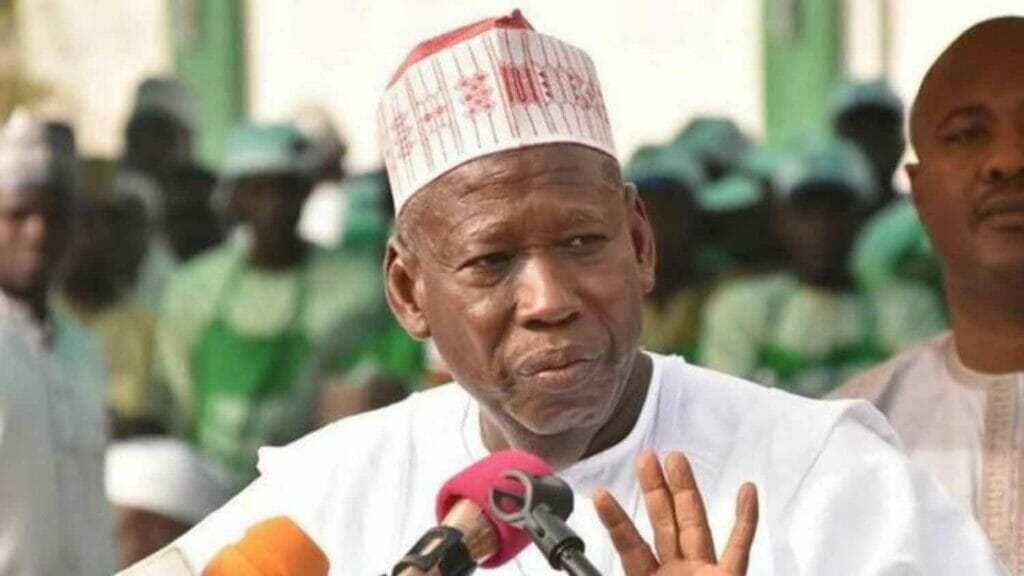The house, presided over by the Speaker, Mr Hamisu Ibrahim-Chidari,after the screening, dissolved into committee of the whole.
The speaker had earlier announced the receipt of a letter from Ganduje, for an additional Commissioner-nominee in the person of Dr Aminu Ibrahim-Tsanyawa, to be screened and confirmed by the assembly.
The News Agency of Nigeria (NAN) recalls that the speaker had on Aug. 15 announced the receipt of a letter from Ganduje to screen and confirm some Commissioner-nominees.
This followed the resignation of some members of the state executive council to contest in the 2023 General Elections.
The new commissioners include: Ibrahim Dan’azumi, Abdulhalim Abdullahi, Lamin Sani-Zawiyya,Ya’u Abdullahi-Yan’shana, Garba Yusuf Abubakar and Dr Yusuf Jibirin.
Others are Adamu Fanda, Saleh Kausami, and Dr Ali Burum-Burum.
Ibrahim-Chidari said that an invitation letter had been sent to Ibrahim-Tsanyawa to appear before the house on Tuesday, for screening.
The nine nominees were screened and the legislators deliberated on the screening which resulted to the confirmation of the commissioners.
NAN also reports that some of the nominees who were a former speaker and commissioners were given only few minutes to explain their previous achievements.
Speaking on behalf of the nominees, Burum-Burum commended the house for conducting the exercise smoothly.
“I will do my best to see that I assist the executive governor to achieve his aims and aspirations of lifting Kano to greater heights,” he vowed.
Meanwhile, the House standing Committee on Women Affairs has been ordered by the house to report back to it within two weeks for further legislative action on an amendment of the bill of persons with disability (PWD) 2018.
Earlier, the Majority Leader of the house, Alhaji Labaran Abdul-Madari, said that the PWD bill, if passed into law would improve service delivery to persons with disability and protect their rights as citizens.
“The bill will reduce inequality between able persons and those with special needs for social inclusion, enhance investment, good health and education,” he said.
